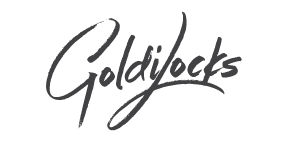
Why Wishcycling Causes More Harm than Good
Wishcycling is the practice of putting an item in the recycling bin with the hopes that it is recyclable. While this is often done with good intentions, wishcycling can cause far more harm than good. When items such as disposable coffee cups, greasy pizza boxes, or ink cartridges are recycled, they can contaminate entire batches of recycling and render it unsalvageable. Thus creating even more unnecessary waste.
To avoid wishcycling, the key is to refer to your local recycling instructions when unsure whether an item is recyclable and reference resin codes* to ensure you sort your recyclables correctly.
To Recycle or Not to Recycle?
There are a quite a few items that get mistaken as recyclable. For instance, any cardboard takeout container can at first glance appear to be recyclable, however, if there is any food residue or grease stains in the container, you must separate those pieces from the uncontaminated parts and dispose of the contaminated parts separately. While disposable coffee cups present at first instinct as recyclable, their inner lining is plastic, making them too complex to recycle curb side.
The more you acquaint yourself with general knowledge surrounding recycling best practices, the better equipped you'll be to avoid wishcycling. Below find more items that are not suitable for traditional curb side recycling.
- Dirty Containers
- Paper Towels
- Disposable Cups
- Greasy Pizza Boxes
- Takeout Containers with Food Residue
- Electronics, Batteries, Paint
- Plastic Smaller Than a Credit Card
- Coffee Pods
- Diapers (yes, people sometimes recycle them)
- Styrofoam
- Soft plastics
How to Properly Recycle
There are a few general rules of thumb when recycling. The more complex a material is, the less likely that it will actually be recyclable. In order to ensure liquids such as orange juice, milk etc. don't contaminate a batch of recycling, they must be emptied from containers and thoroughly rinsed. Below find a list of best practices to ensure you don't unwillingly take part in wishcycling.
- Empty liquids completely
- Rinse recyclables thoroughly
- Remove caps and lids
- Sort recyclables appropriately
- Educate yourself on local recycling regulations and materials
- Understand what items are not recyclable (greasy takeout containers, coffee pods etc.)
- Bring electronics, batteries, styrofoam to appropriate depot
- Compostable does not mean recyclable
- When in doubt, throw it out
What Is a Resin Code?*
A resin code is the number located inside the recycling symbol on most plastics. Most containers are made from one of six resins or plastic polymers. These codes were developed with the intent of simplifying the recycling/sorting process. There is a resin code #7, which is the code used for any items in an “other” category, such as biodegradable, compostable, or laminated.
Summary of resin codes:
- Plastics with resin code “#7PLA” are compostable. However, if there is no compost bin they must go in the trash, not the recycling.
- #1, #2, and #5 are easily recyclable and can be put in any curb side recycling bin.
- #3, #4, and #6 are more difficult to recycle and can only be processed via special recycling collection in most places.
- #7 are NOT commonly recyclable and have other meanings. Most common is #7PLA, which means compostable (but NOT recyclable). This type of plastic is made from a plant-based starch and is only composable in industrial composting facilities, not backyard composting.
- Avoid recycling plastics that say “biodegradable” unless they display #7PLA
Every municipality is different, so be sure to keep an eye on your local guidelines. Below is a great graphic to place on your fridge or near recycling bins.

How to Dispose of Your Goldilocks Goods?
- Swedish Dishcloths - Compost
- Beeswax Wraps - Compost Or Use as Fire Starter
- Hair Care Containers - Glass Recycling, Metal Recycling or Refill/Upcycle
- Razor Blades - Blade Bank, Metal Recycling
- Goldilocks Packaging - Paper Recycling
Now that you're equipped to avoid wishcycling, it's far more likely that the materials that you do recycle, will be properly processed. However, remember that the first lines of defence against wishcycling will always be rethinking, refusing, reducing and reusing.
Sources:
Are you a wishcycler? Environmental Center. (2021, April 2). Retrieved February 7, 2022, from https://www.colorado.edu/ecenter/2021/04/01/are-you-wishcycler
Deer, R. (n.d.). What is wishcycling? RoadRunner Recycling. Retrieved February 7, 2022, from https://www.roadrunnerwm.com/blog/wishcycling
February 1, 2022. / U., January 20, 2022. / F., January 18, 2022. / F., & January 12, 2022. / S. F. (2019, October 17). 101: Resin identification codes. SPC. Retrieved February 7, 2022, from https://sustainablepackaging.org/101-resin-identification-codes/
Goddard, S. (2021, December 3). Are you wish-cycling? 10 simple tips to recycle right. Green That Life. Retrieved February 7, 2022, from https://greenthatlife.com/wish-cycling-and-tips-to-recycle-right/
Shamsuyeva, M., & Endres, H.-J.. (2021). Plastics in the context of the circular economy and sustainable plastics recycling: Comprehensive review on research development, standardization and market. Composites Part C: Open Access, 6, 100168. https://doi.org/10.1016/j.jcomc.2021.100168
Toussaint, K. (2022, January 14). Why your 'wishcycling' can do more harm than good. Fast Company. Retrieved February 7, 2022, from https://www.fastcompany.com/90713264/wishcycling-waste-experts-harmful-recycling-habir


